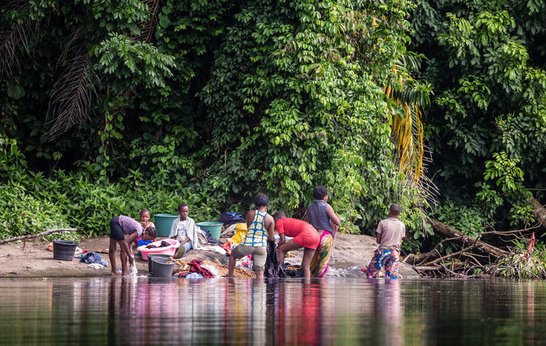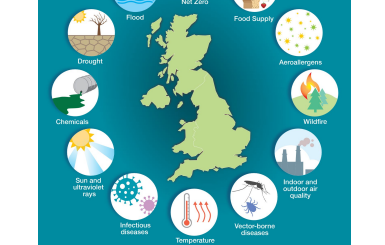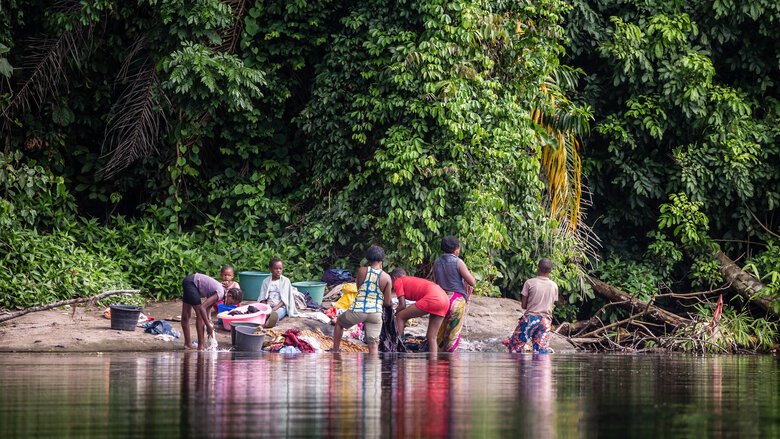
Credit: Global Schistosomiasis Alliance
Last updated: 11 November 2024
Incredible progress has been made in the field of elimination of neglected tropical diseases (NTDs).
As of November 2024, 54 countries have already eliminated at least one NTD and as a community, we're delighted to celebrate disease elimination after elimination.
The link between climate change and NTDs
Yet climate change is significantly impacting human behaviour and livelihoods, and the impact of climate change on global public health is becoming increasingly evident, with profound implications for NTDs. Climate change jeopardises progress made, making it harder to control and eliminate NTDs.
Increased weather events are limiting the capacity of health services to effectively respond to disease, undermining Universal Health Coverage (UHC) and disrupting health systems, widening health inequalities and threatening to undo these monumental achievements in global health.
With changes to weather patterns like temperature, rainfall, and humidity, we’re starting to witness the spread and shift of NTDs into areas they have never been seen in before. Once-controlled diseases are also re-emerging.
For example:
- Mosquitos carrying dengue fever can thrive in extremes of hot, wet conditions. Already a major health problem across the world, chief scientists believe dengue fever will become an increasing threat in the southern United States, southern Europe, and new parts of Africa this decade. 500 million more people could become exposed to chikungunya and dengue as these diseases spread to new geographies due to warmer climates. By 2080, this figure doubles to one billion more people.
Source: Dengue and chikungunya - Ryan SJ, Carlson CJ, Mordecai EA, Johnson LR (2019) Global expansion and redistribution of Aedes-borne virus transmission risk with climate change. PLoS Negl Trop Dis 13(3): e0007213. https://doi.org/10.1371/journal.pntd.0007213 - Sleeping sickness is transmitted through the bite of infected tsetse flies, causing fever, headaches, joint pain, itching, and sleep disturbances. Left untreated, it can be fatal. As temperatures rise making higher altitudes and cooler regions more suitable for the tsetse fly, modelling predicts a shift in its geographic range to areas that were once considered safe from the disease. Without action, an additional 46-77 million people could be at risk of sleeping sickness by 2090.
Source: Moore S, Shrestha S, Tomlinson KW, Vuong H. Predicting the effect of climate change on African trypanosomiasis: integrating epidemiology with parasite and vector biology. J R Soc Interface. 2012 May 7;9(70):817-30. doi: 10.1098/rsif.2011.0654. Epub 2011 Nov 9. PMID: 22072451; PMCID: PMC3306657. https://pubmed.ncbi.nlm.nih.gov/22072451/
How can we tackle the health impacts of climate change and continue to eliminate NTDs?
Integrating climate resilience into health systems is critical. By predicting shifts in disease patterns, we can plan ahead, enhancing existing health infrastructure, investing in research, fostering cross-sector collaboration, and deploying our resources where they’re needed most.
There is an urgent need for immediate action to safeguard previous global health gains in this rapidly evolving climate landscape. We need to ensure that the health impacts of climate change are understood, that NTDs are part of this conversation, and are not absent in this agenda.
We need to work together to make sure the health impacts of climate change are visible to decision makers in order to unlock vital action and funding. Through sustainable financing, together we can make history and end NTDs in our lifetime.
We must mobilise now to protect and build upon our hard-won victories in health for everyone, everywhere. Let’s act now and invest in neglected tropical diseases.
Climate and NTDs publications
Climate change, malaria and neglected tropical diseases: a scoping review
The World Health Organization’s (WHO) Task Team on Climate Change, Neglected Tropical Diseases (NTDs) and Malaria, in partnership with Reaching the Last Mile (RLM), has released a major scoping review published in Transactions of the Royal Society of Tropical Medicine and Hygiene. The review of 42,693 articles reveals that there is not yet sufficient understanding of the actual and potential impacts of human-induced changes to climate patterns on malaria and NTDs.
It serves as a clarion call for urgent and further research at this nexus – driven by scientists from communities most vulnerable and with a particular focus on mitigation and adaptation strategies to safeguard the fragile gains made against these diseases in recent decades.
On the frontline of climate change and health: A health worker eyewitness report from Geneva Learning Foundation
In 2023, 4700 health practitioners, primarily from districts and facilities in countries of Africa and Asia, came together for the first time to discuss how climate change has been affecting the health and wellbeing of the local populations they serve.
This report from the Geneva Learning Foundation synthesises their experiences and insights. It also presents the background of why and how they came to connect and learn from each other, how the Geneva Learning Foundation created this chance for health practitioners to communicate their observations to each other and the outside world, and how TGLF plans to provide additional opportunities for practitioners to share ideas on working with local communities to address climate-related health challenges.
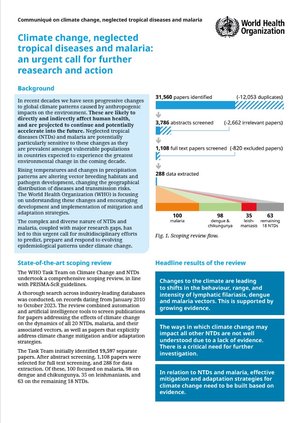
30 November 2023
Download the WHO communiqué on climate change, NTDs and malaria
The Reaching the Last Mile Forum at COP28
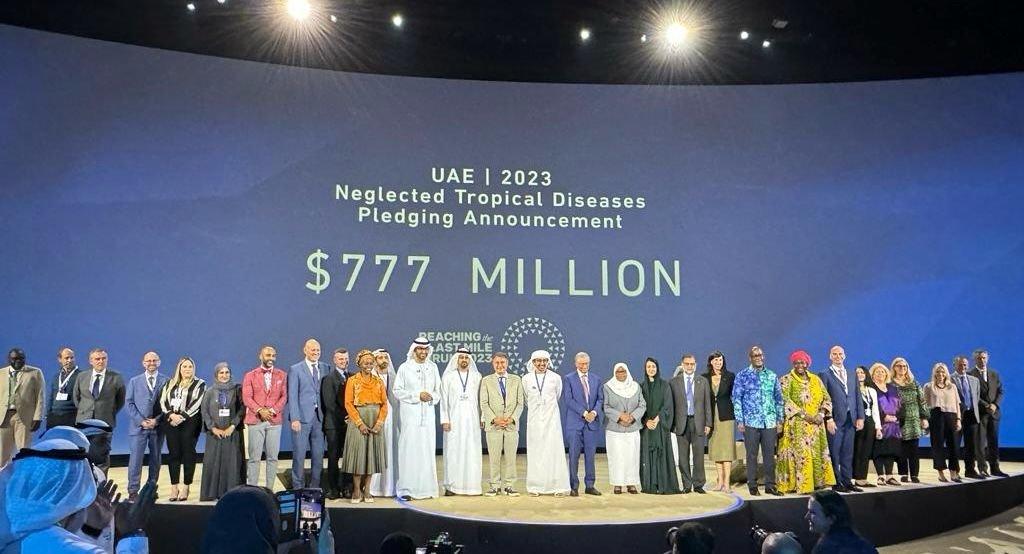
The 2023 Reaching the Last Mile Forum took place at COP28 in Dubai, UAE from Reaching the Last Mile and in collaboration with the Bill & Melinda Gates Foundation on the COP's first ever dedicated Health Day, emphasising the link between health and climate change and recognising that the climate crisis is a health crisis.
This brilliant, galvanising opportunity to spotlight neglected tropical diseases (NTDs) and their connection to climate change, featuring a dedicated moment to celebrate the remarkable progress made against NTDs and announce new commitments towards disease elimination goals, totalling a groundbreaking $777 million!
